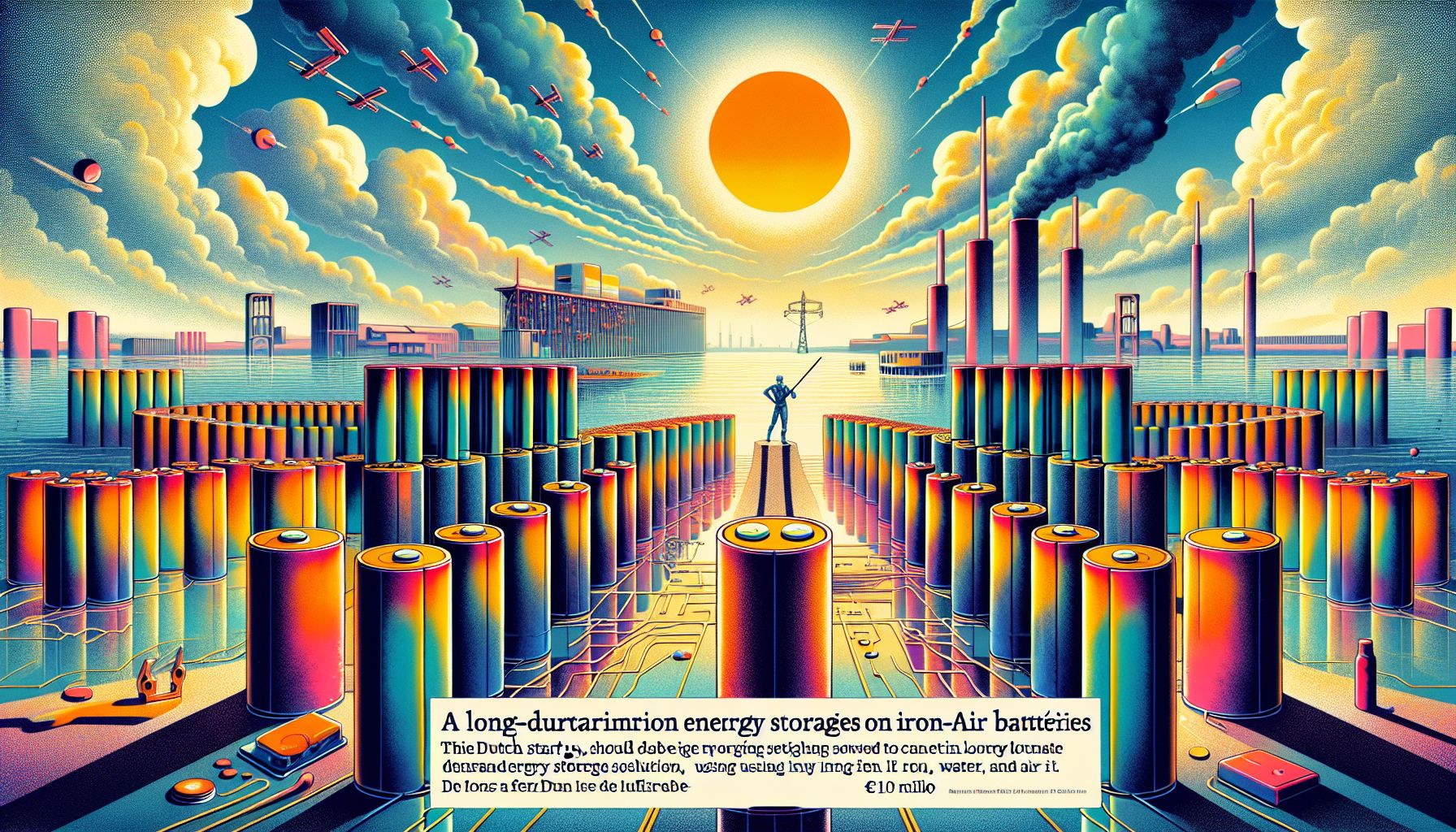Ore Energy Secures €10 Million for Innovative Iron-Air Batteries

Dutch start-up Ore Energy raised €10 million to advance their iron-air battery technology, promising a cost-effective, long-duration energy storage solution using only iron, water, and air.
The Science Behind Iron-Air Technology
Iron-air batteries operate on a simple yet effective chemical reaction: rusting. When the iron oxidizes, it releases energy, and during charging, this reaction is reversed. The process involves the iron ‘breathing’ oxygen from the air, a method that is both efficient and sustainable. This technology offers an energy storage solution that lasts up to 100 hours, far surpassing the capabilities of traditional lithium-ion batteries, which are not only more expensive but also dependent on scarce materials [1].
Pioneers in the EU
Founded by Dr. Aytac Yilmaz, a researcher from TU Delft, Ore Energy is pioneering this technology within the European market. The Netherlands-based company emerged from stealth mode with a significant funding boost from Positron Ventures and SPRIND, totaling €10 million [2]. This financial support will expedite the transition from prototype to large-scale production, positioning Ore Energy as a formidable player in the renewable energy sector within Europe.
Addressing Renewable Energy’s Intermittency
Renewable energy sources such as solar and wind are inherently intermittent, causing fluctuations in energy availability. On days without sunshine or wind, traditional energy storage solutions fall short. Ore Energy’s iron-air batteries provide a solution to this problem by ensuring a stable energy supply even during prolonged periods of bad weather. This capability is crucial for balancing the grid and supporting the continuous use of renewable energy [3].
Economic and Environmental Impact
One of the most compelling benefits of Ore Energy’s iron-air batteries is their cost-effectiveness. These batteries are estimated to be one-tenth the price of lithium-ion batteries. Furthermore, they use abundant and non-toxic materials—iron, water, and air—eliminating the environmental and geopolitical issues associated with mining rare earth metals [4]. This innovation not only makes renewable energy storage more affordable but also significantly reduces the ecological footprint of energy storage technologies.
Future Prospects and Market Position
With the €10 million funding, Ore Energy plans to build a megawatt-scale factory, setting the stage for gigawatt-scale production by the decade’s end. While U.S.-based Form Energy is a notable competitor, Ore Energy’s entry into the EU market represents a significant step towards energy independence and resilience in Europe. The company’s scalable, modular design also means that their technology can be adapted for various applications, from small community projects to extensive industrial energy storage [5].

